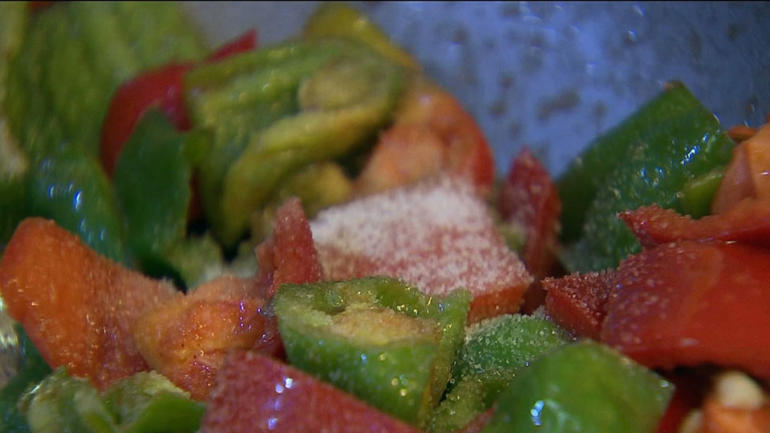It’s a disturbing report on dietary habits in China. It shows salt intake there is among the highest in the world.
And researchers warn urgent action is needed to address the problem.
CGTN’s Frances Kuo reports.
Chinese cuisine is among the most popular in the world, and salt has been a big component of Chinese diets.
“Historically actually, China discovered that salt could be used for food by making pickles, for example,” said Monique Tan of Queen Mary University of London. “But now that you have refrigeration technologies, we don’t need to use salt anymore for preservation, but people have kept their habits and their cuisines so that nowadays most of the salt consumed in China is salt added into their dishes.”
Now, the evidence argues that those habits are hazardous. According to new research by Queen Mary University of London, salt intake in China is among the highest in the world.
Researchers said over the past 40 years, adults there consume, on average, about 10 grams of salt every day.
That’s more than double the amount recommended by the World Health Organization.
Monique Tan was the study’s lead author.
“The amount of salt we eat has a direct effect on our blood pressure,” said Tan. “The more salt we eat, the higher the blood pressure. And the higher the blood pressure, the greater strain on our organs, which ultimately leads to heart attacks, strokes and kidney disease, all of which are increasingly important public health issues in China. 40% of all deaths in China are due to cardiovascular disease.”
Another finding: Chinese children between three and six years old are eating the maximum amount of salt typically recommended for adults.
“Child adolescence is a key period of the formation of dietary habits and taste preferences, so it’s really important to tackle this issue early in life,” said Tan.
Geography also plays a role in China.
Tan said there’s a clear divide between salt consumption in the north and south.
“In northern China, over the past four decades, salt intake has declined over time, and this could be thanks to government efforts in salt awareness education. It could also be due to improvements over time of year-round availability of fresh produce so people don’t depend on salt so much,” said Tan.
There’s a more dire outlook in the south where salt intake is on the rise.
“This could be due to all the salt reduction efforts being mitigated by the growing consumption of processed food,” said Tan.
Researchers said potassium salt – which has a similar taste – is a healthy alternative.
While sodium increases blood pressure, potassium actually lowers it.
The Chinese government has set a goal of reducing national salt intake by 20 percent by 2030. But ultimately, it will be up to the Chinese consumer to kick the habit.
Dr. Laura Cobb talks about salt intake in China
CGTN’s Elaine Reyes talks with Dr. Laura Cobb, director of Nutrition Policy at Resolve to Save Lives, about salt intake in China.
 CGTN America
CGTN America

